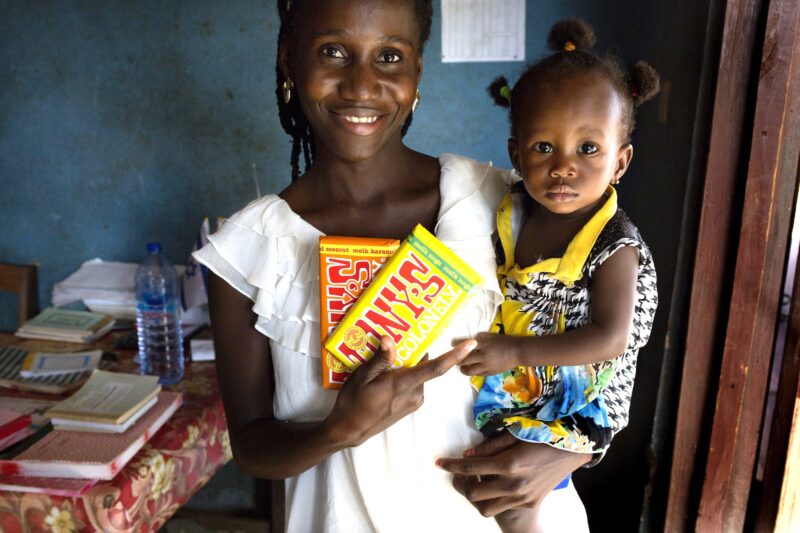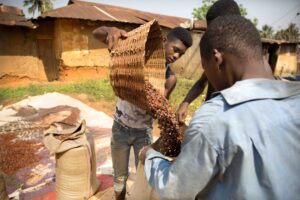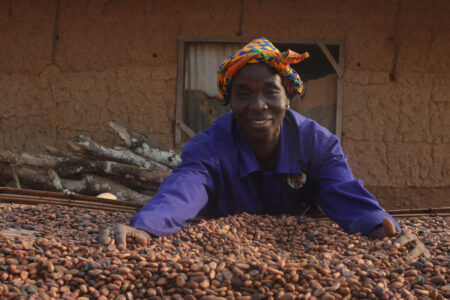Exclusive: Tony’s Chocolonely World Confectionery Conference interview

Tony’s Chocolonely has gained a major profile for its mission of delivering ‘slave free chocolate,’ over more than a decade. Neill Barston discusses its key goals with chief impact and operating officer Pascal Baltussen ahead of his role speaking at the World Confectionery Conference (register for our event on 9 September here).
When Tony’s Chocolonely’s founder Teun van de Keuken, an experienced journalist, first began the company’s venture producing chocolate bars more than 15 years ago, the notion of delivering sustainability within industry was a concept few had truly examined.
However, when the determined writer featured in an investigative television documentary on the confectionery sector’s supply chain sourcing practices, it sparked the creation of his business. Yet it appeared an uphill battle in convincing global brands within the sector to take them seriously. Consequently, after its initial batch of 5,000 Fairtrade bars was snapped up in 2005, it quickly proved there was a market for products that place a social conscience at the heart of their development.
Fast-forward a decade, and in making a bold step in partnering with the world’s largest chocolate manufacturer, Barry Callebaut, Tony’s set its sights on inspiring change through being connected to the core of the industry, rather than its fringes. (See our exclusive video with Tony’s Pascal Baltussen, who is due to speak at our World Confectionery conference, here).
Its focus on creating greater transparency hasn’t always necessarily worked in the company’s favour, as it endures scrutiny for disclosing limited instances of child labour in its supply chains in Ghana and Ivory Coast.
However, it remains committed to a goal of improving lives in key communities in West Africa. As its chief chocolate officer Henk Jan explains in its recent annual report, it has been a journey packed with tests, yet its work and accompanying campaigns, including engaging movie star Idris Elba and US singer Pharrell Williams, are in his view, making a difference. The sector as a whole, is increasingly engaging in solutions for its social and environmental responsibilities.
“It feels good to put everything into a company that strives to make the world a better place,” he notes, as he prepares to sign off from his post, after more than a decade, believing the business is in a notably improved position. A key element of this, he felt, came with the recent acquisition of chocolate manufacturer Althaea-De Laet International, in Belgium, which produced Tony’s first ever bars. Significantly, despite multiple factors producing market turbulence including the war in Ukraine, the company is enjoying improved financial fortunes.
Its latest improved turnover stands at €109 million, and it has continued to expand its presence around the world, including the US, where it recently exhibited at Sweets & Snacks Expo. The apparent speed of this rise is not lost on Pascal Baltussen, its recently appointed chief impact and operations officer, who remains commendably optimistic in the face of market challenges. “It’s been an amazing year. What I have found looking at everything here is that there’s a great foundation of making impact and building a company based on its impact mission.

pic: Neill Barston
“I have been really impressed with the teams we have both here in Amsterdam and on the ground in Ghana and Ivory Coast, and the connection that we have with the farming co-operatives that are phenomenal businesses we work with,” he enthuses of the company’s ethos, as we speak amid the relaxed surroundings of its downtown Amsterdam base.
Mission possible
As he adds, he’s spent over ten years in the industry as a former sustainability and chief procurement officer for Mars Wrigley, which offered a great industry grounding.
By his own admission, he says observers may wonder if the company’s ambitious goals may seem a mere marketing gimmick. But as he explains, its mission-driven purpose is extremely motivating, fostering a positive culture amid its HQ’s distinctive setting. Casting an eye around our surroundings, there’s a sense it’s perhaps taken a leaf out of the Google playbook of office design, with some smart and quirky additions to its bright furnishings.
Its exterior is classically Dutch in style, yet enter its range of buildings and you’ll find plenty of memorable installations including a funky wall of chocolate, British 1950’s telephone box, glitterball with artistically hung Tony’s bars, and a recreation area complete with table tennis and vibrant colour schemes. There may well be a serious mission at hand, yet its teams seem equally engaged with the notion that workplaces should also have at least some sense of fun.
As for the firm’s distinctively-shaped chocolate itself, Pascal asserts its new Belgian facilities ‘give us more of a chocolatier feeling,’ enabling it to become far closer to its supply chains. In his view, the connections with Barry Callebaut help create ‘some amazing chocolate,’ stating no brand could hope for success without securing quality products.

To that end, the company’s wide ranges do indeed offer something a little different in its flavours, including milk chocolate chip cookie, white raspberry popping candy, and an ‘indie’ bar of chewy caramel and pecans chocolate varieties.
Clearly, business conditions have been far from normal amid the past two years, yet Pascal hopes the worst of the pandemic is now over, allowing its employee-base of around 120 in Amsterdam to re-assemble in slightly more regular manner.
He remarks that the distinctive Tony’s vibe, passion and level of enthusiasm from its staff helps foster a sense of notable pride in their collective work. This is underpinned by three ‘roadmap pillars’ of creating awareness of illegal child labour, aiming to set standards in child labour free chocolate, as well as inspiring major businesses to take positive action.
Indeed, the company is steadily scaling up its actions, presently assisting nearly 9,000 farmers in West Africa through delivering enhanced payment levels.
While few could doubt its laudable aims supporting farming communities, its activities haven’t always gone precisely to plan, with some of its work enduring criticism.
“We have sometimes taken a bashing in the media over our transparency,” concedes Pascal, of its policy of clearly identifying any incidents of child labour discovered within cocoa supply chains. Concerningly, the overall scale of the industry’s task at hand is immense – with more than 1.5 million minors still subject to child labour in West Africa.

These figures continue to be further impacted by ongoing effects of the Covid-19 pandemic, declining cocoa prices, and market turbulence as logistics around the world come under pressure. It’s a situation Tony’s is doing its upmost to address.
“We believe children should be allowed to play and have access to education, and should not be exposed to dangerous environments, that’s what we completely stand by. “We have been looking at the issues of tackling child labour for the past decade now and how can we educate people that it’s not ok for small children to work on farms – the results we see are incredibly impressive.
“It doesn’t come with one solution – it comes with a series of five things that need to be done, as the root cause of this in poverty, and that’s something you have to address,” he explains of its approach to putting farmers at the heart of its global activities.
As he reflects, this includes a strong policy of visiting all households involved in its cooperative farming schemes, and greater educational access for children, as well as wider educational and community support measures are especially vital elements of its work. “What we do as a company is work on five sourcing principles that address living wage for farmers, including remediation systems. They are about paying a higher price for cocoa- you can’t expect them to get out of poverty unless you pay them more. So, our rates around 40 per cent more than the average market rate in Ivory Coast and 25 per cent more than typical in Ghana, and we boost immediate incomes.”
He reveals that part of its core ‘open chain’ sourcing principles is a major goal of having a fully traceable cocoa supplies, which he regards as completely essential. As Pascal states, enabling thriving farming communities is vital for the future sustainability of the sector, noting that working with co-operatives offers a key to success.
“We believe in strong farmers – we work with them as independent companies, so we invest in them to be successful. We’re also in this for the long-term and give them five-year commitments, and they do not have to buy from us,” adds Pascal, who concludes that closely scrutinised child labour, monitoring and remediation systems form another core strand of its overall activities. “We’ve had some incredible results – but they still need to be better,” he concludes of its commitment to continuing to drive change within the wider industry, which still has a long road ahead to ensure the future of the sector and those working on the frontlines of its supply chains



